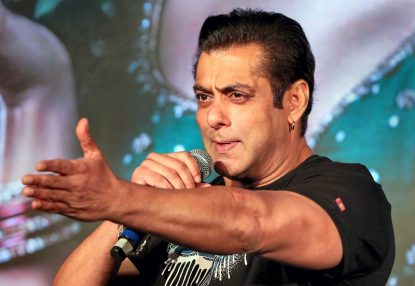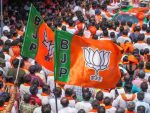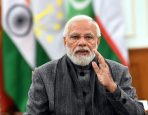
Boomers vs millennials? Free yourself from the phoney generation wars
PTI, Sep 5, 2021, 9:19 AM IST

Source: unsplash
Generational thinking is a big idea that’s been horribly corrupted and devalued by endless myths and stereotypes. These cliches have fuelled fake battles between “snowflake” millennials and “selfish” baby boomers, with younger generations facing a “war on woke” and older generations accused of “stealing” the future from the young.
As I argue in my book, Generations, this is a real shame. A more careful understanding of what’s really different between generations is one of the best tools we have to understand change – and predict the future.
Some of the great names in sociology and philosophy saw understanding generational change as central to understanding society overall. Auguste Comte, for example, identified the generation as a key factor in “the basic speed of human development”.
He argued that “we should not hide the fact that our social progress rests essentially upon death; which is to say that the successive steps of humanity necessarily require a continuous renovation … from one generation to the next”. We, humans, get set in our ways once we’re past our formative years, and we need the constant injection of new participants to keep society moving forward.
Understanding whether, and how, generations are different is vital to understanding society. The balance between generations is constantly shifting, as older cohorts die out and are replaced by new entrants. If younger generations truly do have different attitudes or behaviors to older generations, this will reshape society, and we can, to some extent, predict how it will develop if we can identify those differences. But in place of this big thinking, today we get clickbait headlines and bad research on millennials “killing the napkin industry” or on how baby boomers have “ruined everything”. We’ve fallen a long way.
Myth-busting To see the true value of generational thinking, we need to identify and discard the many myths. For example, as I outline in the book, gen Z and millennials are not lazy at work or disloyal to their employers. They’re also no more materialistic than previous generations of young: a focus on being rich is something we tend to grow out of.
Old people are not uncaring or unwilling to act on climate change: in fact, they are more likely than young people to boycott products for social purpose reasons.
And our current generation of young is not a particularly unusual group of “culture warriors”. Young people are always at the leading edge of change in cultural norms, around race, immigration, sexuality and gender equality. The issues have changed, but the gap between young and old is not greater now than in the past.
Meanwhile, there are real, and vitally important, generational differences hidden in this mess. To see them, we need to separate the three effects that explain all changes in societies. Some patterns are simple “lifecycle effects”, where attitudes and behaviours are to do with our age, not which generation we are born into. Some are “period effects” – where everyone is affected, such as in war, economic crisis or a pandemic.
And finally, there are “cohort effects”, which is where a new generation is different from others at the same age, and they stay different. It’s impossible to entirely separate these distinct forces, but we can often get some way towards it – and when we do, we can predict the future in a much more meaningful way. There are many real generational differences, in vitally important areas of life. For example, the probability of you owning your own home is hugely affected by when you were born. Millennials are around half as likely to be a homeowner than generations born only a couple of decades earlier.
There is also a real cohort effect in experience of mental health disorders, particularly among recent generations of young women. Our relationship with alcohol and the likelihood of smoking is also tied to our cohort, with huge generational declines in very regular drinking and smoking. Each of these points to different futures, from increased strain on mental health services to declining alcohol sales.
But lifecycle and period effects are vitally important too. For example, there is truth in the idea that we grow more conservative as we age. One analysis suggests that this ageing effect is worth around 0.35% to the Conservatives each year, which may not sound like a lot, but is very valuable over the course of a political lifetime.
And, of course, the pandemic provides a very powerful example of how period effects can dramatically change things for us all.
Reaching beyond the avocado When there is such richness in the realities, why are there so many myths? It’s partly down to bad marketing and workplace research – that is, people jumping on the generation bandwagon to get media coverage for their products or to sell consultancy to businesses on how to engage young employees.
This has become its own mini-industry. In 2015, US companies spent up to USD 70 million (£51 million) on this sort of “advice” according to the Wall Street Journal, with some experts making as much as USD 20,000 an hour. Over 400 LinkedIn users now describe themselves solely as a “millennial expert” or “millennial consultant”.
Campaigners and politicians also play to these imagined differences. Our increasing focus on “culture wars” often involves picking out particular incidents in universities, such as the banning of clapping at events or the removal of a portrait of the Queen to exaggerate how culturally different young people today are.
Maybe less obviously, politicians such as former US President Barack Obama repeatedly lionise coming generations as more focused on equality when the evidence shows they’re often not that different. These assertions are not only wrong, but create false expectations and divides.
Some have had enough, calling on the Pew Research Center in the US, which has been a champion of generational groups, to stop conducting this type of analysis. I think that misses the point: it’s how it’s applied rather than the idea of generations that’s wrong.
We should defend the big idea and call out the myths, not abandon the field to the “millennial consultants”. (The Conversation. Written by Bobby Duffy, Professor of Public Policy and Director of the Policy Institute, King’s College London)
Udayavani is now on Telegram. Click here to join our channel and stay updated with the latest news.
Top News
Related Articles More

India aims to achieve debris-free space missions by 2030: ISRO chief Somanath

Will AI help or hinder trust in science?

AI, once a research subject, today a reality!

IIT-Madras, NPTEL launch technical courses in vernacular languages

Sub-metre optical satellite assembled, tested in India deployed into space: TASL
MUST WATCH
Latest Additions

Kerala man surprises parents with UPSC rank

All set for ‘Surya tilak’ of Ram Lalla in Ayodhya on Ram Navami

LS polls Phase-2: ADR analysis shows 21% of candidates have criminal cases against them

Accused conducted recce around Salman Khan’s house three times before firing

JD(S) seeks EC action over alleged security lapse at meet attended by Deve Gowda
























